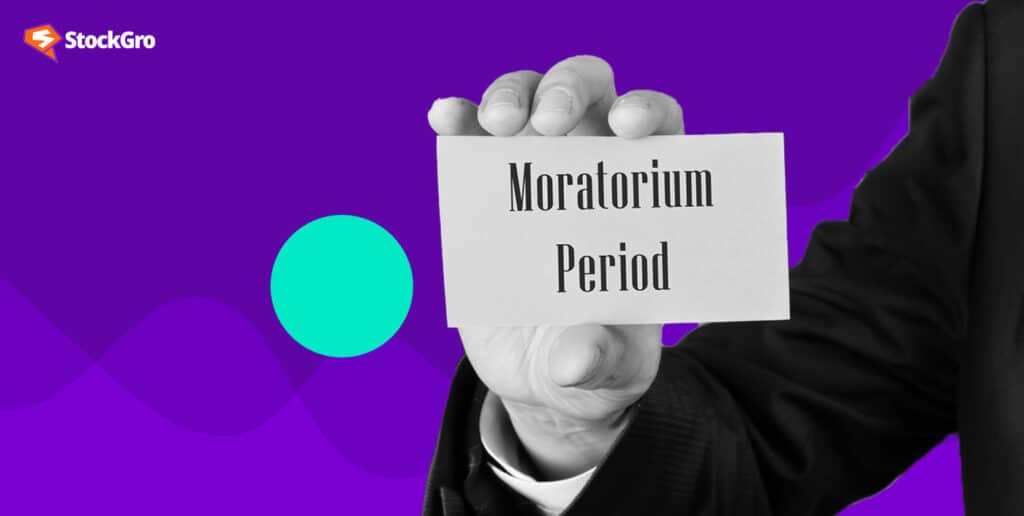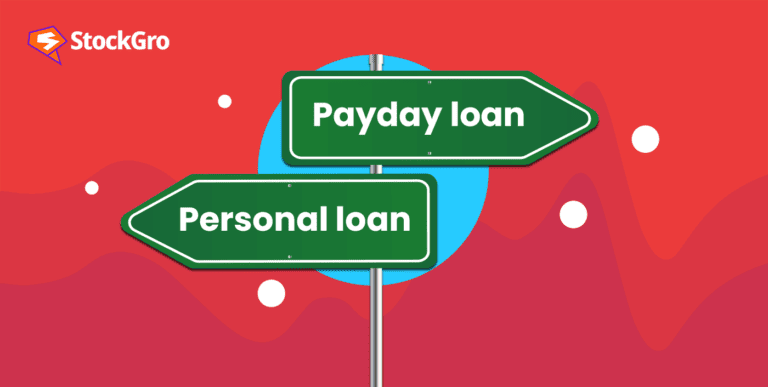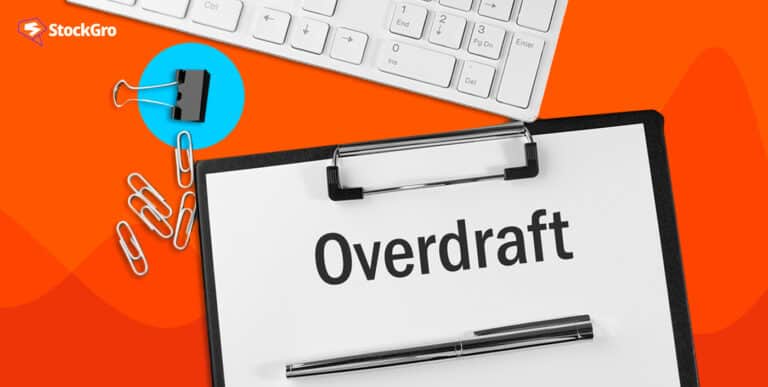
Are you strained by loan EMI payments? Banks now offer moratorium options, temporarily pausing dues. A moratorium period empowers stressed borrowers to catch their breath and regain control over their finances.
Understanding the moratorium ins and outs lets you make an informed call – whether a breather ultimately hurts or helps.
In this article, we will discuss what a moratorium period is, its benefits and drawbacks, and whether you should take one. Let’s find out!
What is a moratorium period?
A loan moratorium is a period during which the Reserve Bank of India does not require the borrower to make loan payments on a monthly basis. Borrowers may avoid EMI payments for a certain amount of time throughout the moratorium period, which eventually delays repayment.
Eligible borrowers need to make EMI payments from the beginning of the loan’s term to its completion. On the other hand, if you choose a moratorium, the lender will not demand repayment for a certain period.
The interest on your loan will continue to build up during this period, even if you are not making any payments. The number of months you choose for a moratorium will also contribute to the total duration of your loan.
In addition to the moratorium on loans that were made available as a relief measure during the COVID-19 epidemic, it has been extensively used for some forms of credit, such as student loans, when the applicant needs a certain amount of time to return the debt.
Also read: Debt management: Advanced strategies for paying off debt quickly
Understanding the moratorium period for a personal loan
Due to the COVID scenario, the Reserve Bank of India (RBI) has authorised banks to provide an EMI pause for the majority of loans, even though the moratorium period is more readily available for house and student loans.
Personal loans sometimes include a moratorium period that borrowers may take advantage of to ease their financial situations temporarily.
However, the interest will stay the same, and any payment delay can result in additional EMIs. This means that your loan tenure will be extended, and you will pay more interest over the entire loan period. The moratorium approach is used in cases of an immediate need for funds.
Is it a smart move to take a moratorium or not?
Any borrower thinking about asking their lender for a moratorium must keep a few considerations in mind.
- Borrowers should only accept a moratorium when they are unable to pay the EMIs or when it is essential.
- Borrowers must accept a moratorium for the shortest duration that is possible.
- Throughout the period, the borrower will be obligated to pay interest on the loan while it continues to accrue moratorium period interest.
- Borrowers are not obligated to accept the moratorium, even if the lender offers it.
Also read: Debt management: Advanced strategies for paying off debt quickly
Benefits of taking a moratorium period
After accepting the moratorium, a borrower will get some of the following benefits.
- An improved method of repayment
Borrowers may create a repayment plan without undue stress with the help of a moratorium on their loan. Instead of diluting assets to pay back the loan, it might help them collect funds from many sources and start methodically repaying the debt.
- During times of economic turmoil
The pandemic has vividly shown the worldwide financial effects of a pandemic. Due to layoffs, salary reductions, and losses in households, thousands of individuals have seen their life savings disappear.
As a result, many individuals had to deal with financial hardship. A loan moratorium was helpful in this situation since it allowed millions of individuals to avoid a financial collapse.
- Your credit score will remain unaffected
One of the loan moratorium’s main advantages is that it will not have an adverse effect on your credit score. Throughout the moratorium period, a borrower’s credit score will remain unaffected if they do not pay their debts in regular installments. Therefore, your ability to borrow funds is unaffected by a moratorium.
Drawbacks of taking a moratorium period
- Prolonged duration of loan
A moratorium on debt will lengthen its repayment period. You may have to reevaluate your investing strategies and long-term financial objectives as a result.
- No interest waiver
A significant drawback of a loan moratorium is that it just delays repayment, not eliminates it. As a borrower, this means you have an obligation to pay interest to the lending institution. It’s also possible for interest rates to go up during moratoriums, which would make your future payments even harder to make.
- Unexpected stress
If you temporarily stop paying your debts, you might feel better in the short term, but the interest will still come due in the end. The unanticipated pressure of significant payments could put a strain on your monthly budget and cause cash flow issues if you haven’t prepared beforehand.
Also read: How to build wealth with asset allocation strategies?
Conclusion
To wrap up, having a clear understanding of the moratorium period is critical for today’s stressed borrowers to secure a stable tomorrow. However, make sure that this approach of making payments later fits your future budget or at least helps you tackle unintended challenges temporarily.
It is thus advised to look at all the pros and cons before deciding to see if a moratorium ultimately helps more than it hurts your situation down the road.

